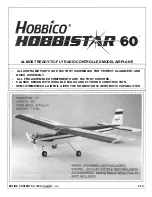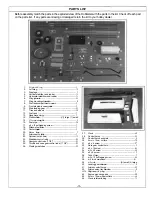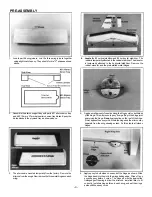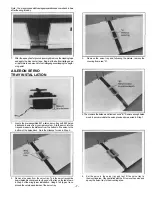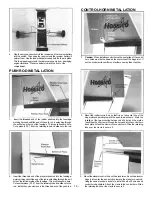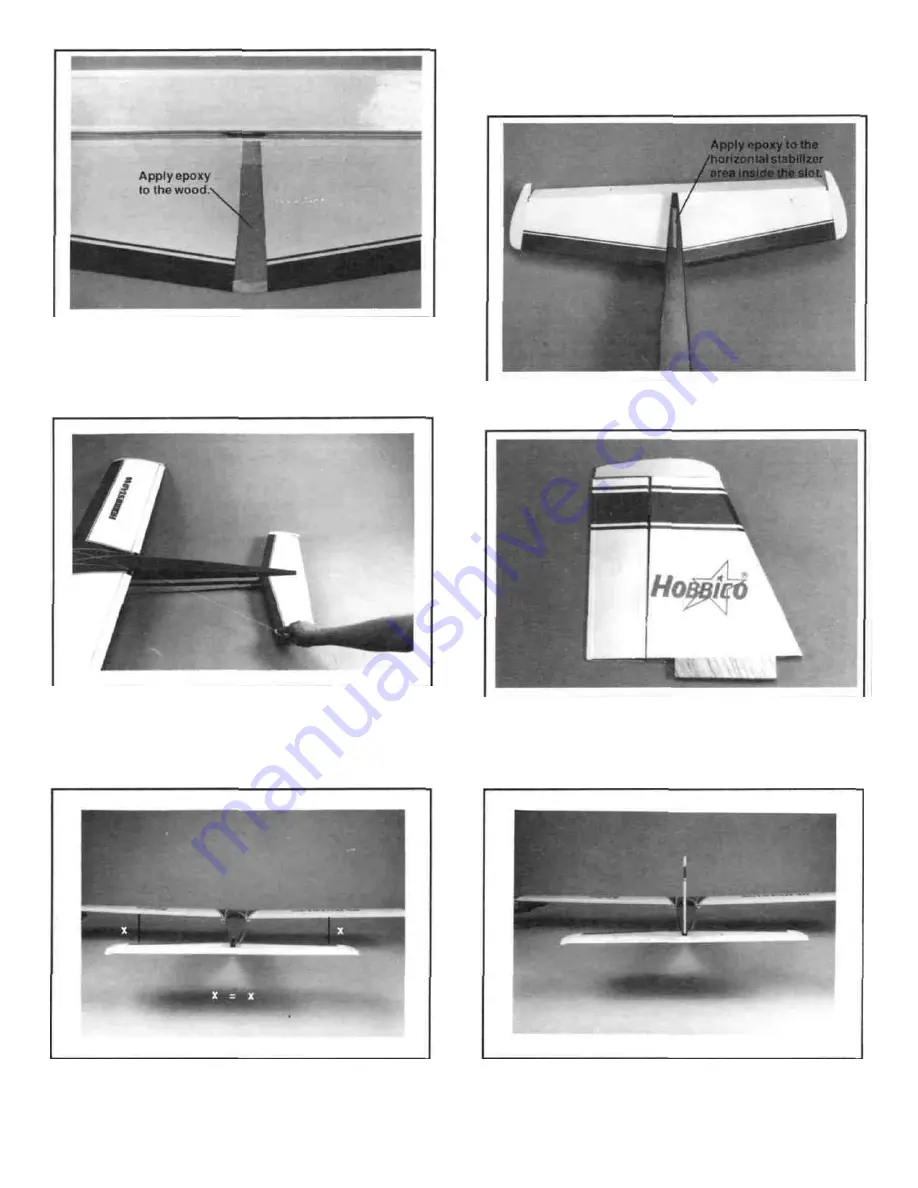
4. Using the same scrap of plywood, apply an even coat of epoxy to the
top and bottom of the horizontal stabilizer in the area where you
removed the covering.
INSTALLATION OF VERTICAL STABILIZER
Now if we have done a good job with the wing-stabilizer relationship, the
installation of the rudder should be easy. The vertical stablilizer is 90' to
the wing. A drafting triangle would be helpful here.
5. Slide the stabilizer into the slot from the rear. This fit should be close
but not tight. Using a ruler (12") check to see if you have equal
distance from the center of the tail to the outside edge of the stab.
Now using the string explained in the stabilizer preparation section,
adjust the stabilizer so it is 90' to the center line of the fuselage.
1. Looking into the fuselage vertical stabilizer slot, apply some epoxy
to the top surface of the horizontal stabilizer that is visible inside the
fuselage.
2. Mix a small batch of epoxy and apply it to the area inside of the
fuselage on the surface of the exposed wood. Apply an even coat
to the vertical stabilizer base where you removed the covering. Inset
the vertical stabilizer into the slot and push down until the stabilizer
stops.
6. Now view the stabilizer-wing relationship from behind with the plane
resting on a level surface (see photo above). Distance "x" should be
the same. If not, shim the stabilizer using a small sliver of wood to
get the proper relationship. Let the epoxy cure thoroughly.
3. Using the triangle, check to see if the rudder is 90* to the horizontal
stabilizer. If so, a couple of straight pins will hold the rudder in
position until the epoxy cures.
-10-

